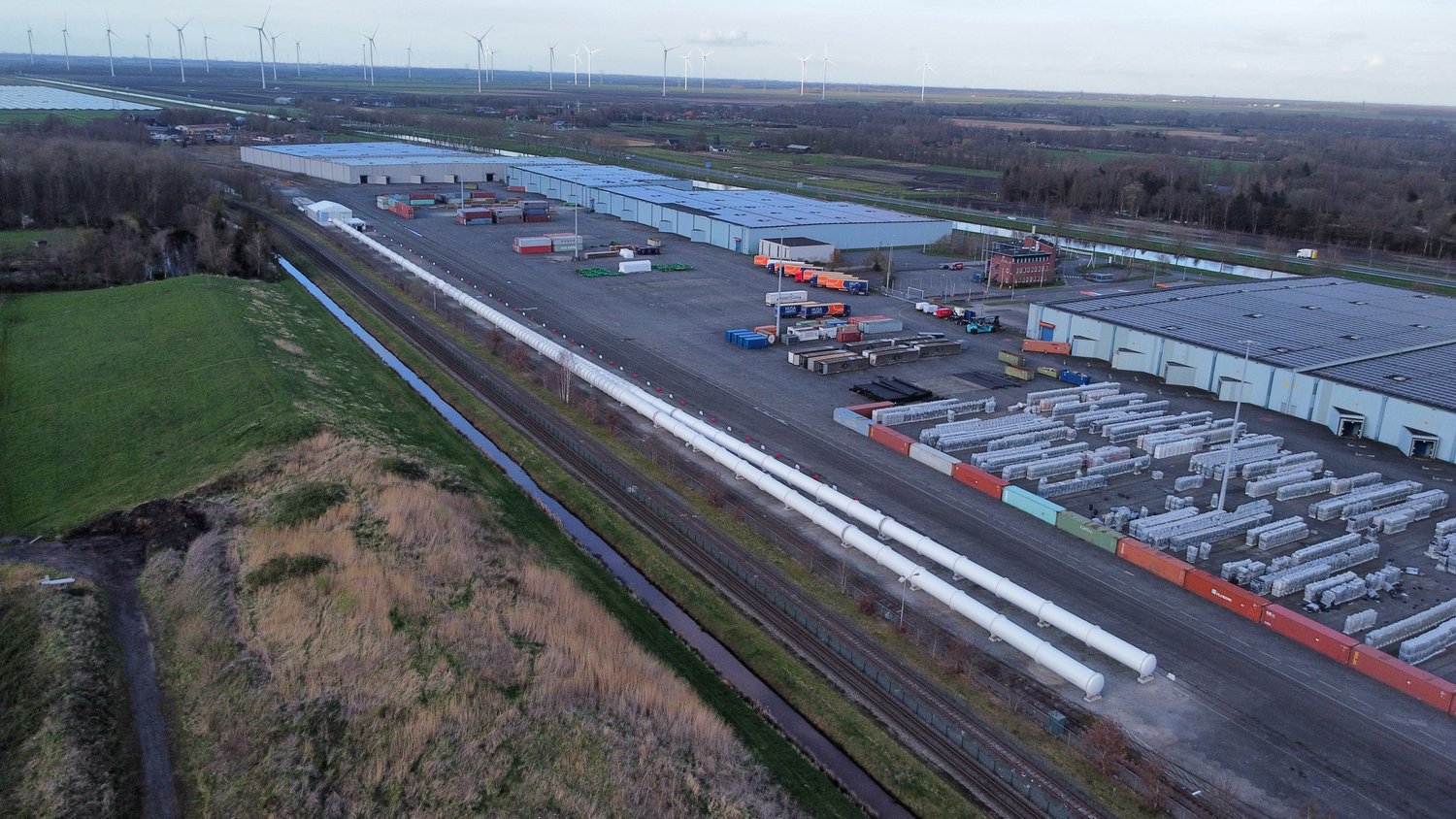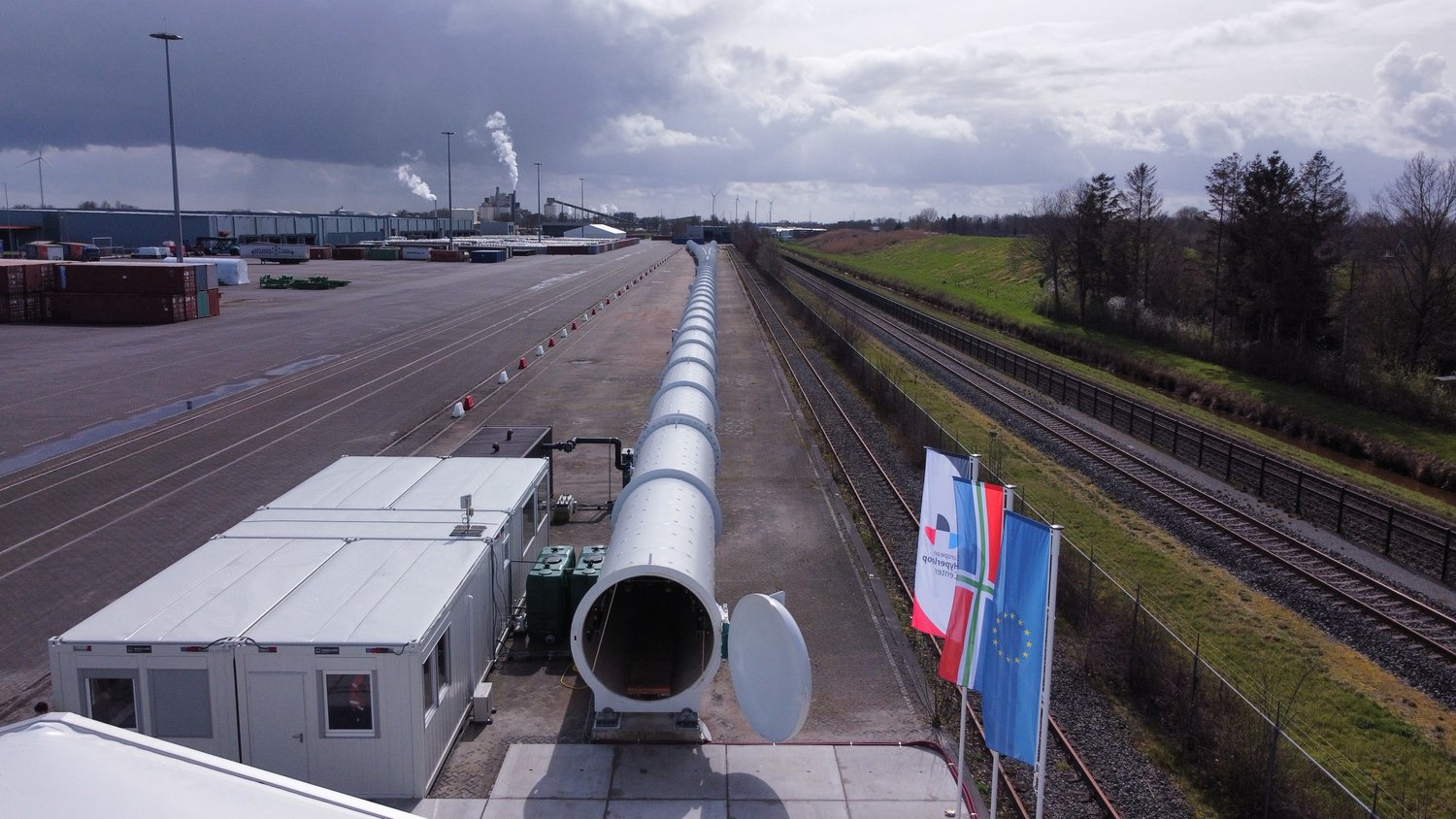Successful test of a futuristic transport technology has been completed in the Netherlands, at a recently completed test facility.
Hardt Hyperloop announced that it has carried out its first successful test of its hyperloop vehicle at the European Hyperloop Center (EHC) in Veendam, which it said “marks a significant step forward in the development of hyperloop technology in Europe and the world.”
The European Hyperloop Center (EHC) in Veendam, the Netherlands, was opened in March 2024 and offers a 420-metre hyperloop test tube that runs alongside a train track.

Image credit: The European Hyperloop Center (EHC)
Hyperloop test
According to Hardt Hyperloop, during the test the hyperloop vehicle demonstrated its hyperloop traction technologies, which include the magnetic levitation, guidance, and propulsion systems of the hyperloop.
Hardt said the vehicle moved smoothly through the first 90 meters of the 420-meter long EHC facility at a speed of almost 30 km/h (19 mph), with an acceleration of 0.2G.
“The successful first demonstration of our traction technologies is a testament to the hard work and dedication of our team and partners”, said Marinus van der Meijs, Technology and Engineering Director at Hardt Hyperloop. “We are excited with this first result and can’t wait to perform our upcoming full-speed tests, close to 100 km/hr, in the EHC with a lane-switch later this year.”
“This achievement marks a key milestone toward realising the hyperloop in Europe and around the world,” added Roel van de Pas, Commercial Director and incoming CEO of Hardt Hyperloop. “It is a great step in the right direction to continue with proving the other aspects of hyperloop, like cornering, lane-switching, and hyperloop vehicles branching in and out, which can all be tested in the European Hyperloop Center.”

Image credit: The European Hyperloop Center (EHC)
Hardt Hyperloop is now focused on its next testing milestone: a full-speed test (80-100 km/h or 50mph-60mph) through the lane switch in a low-pressure environment, alongside technology verification and validation tests, expected to be completed in the upcoming year.
Future transportation option?
Hyperloop is an experimental transport system that has long been touted as a way to propel pods or shuttles through low-pressure tubes at speeds of up to 700kp/h (430mph).
Indeed, Elon Musk’s so-called “alpha paper” in 2013 proposed a line linking San Francisco and Los Angeles, but this never came to fruition.
However a Virgin Hyperloop pod in November 2020 had reached a speed of 107mph carrying two passengers through a 500 metre test track in the Nevada desert.
![]()
But questions about the technology surfaced in December 2023, when Los Angeles-based Hyperloop One sold off its assets and laid off its remaining workforce, after failing to secure any contracts to build a working hyperloop system.
![]()
The idea of trains in vacuum has been touted many times in science-fiction. For example the concept of Hyperloop transportation was first introduced by Robert H. Goddard in 1904.
It was envisioned a hyperloop using magnets to propel shuttles along pipes in near-vacuum conditions, with the lack of friction and air resistance potentially allowing the vehicles to rival the speed of aeroplanes.
Supporters tout the more energy efficient benefits that a hyperloop offers for the mass transportation of people or indeed freight, compared to high speed rail or indeed air travel.
China in 2022 opened one-mile test track for “low-vacuum pipeline magnetic levitation technology” in Shanxi province, and this test facility can reportedly enable speeds up to 700 kp/h.




